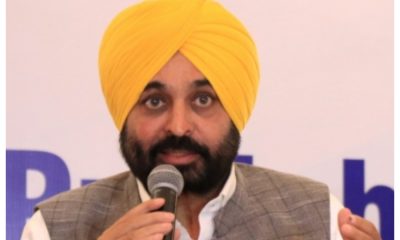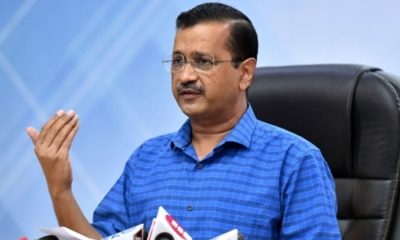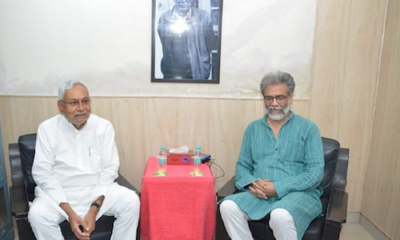National News
Punjab to provide 600 units of free power to every household per billing cycle
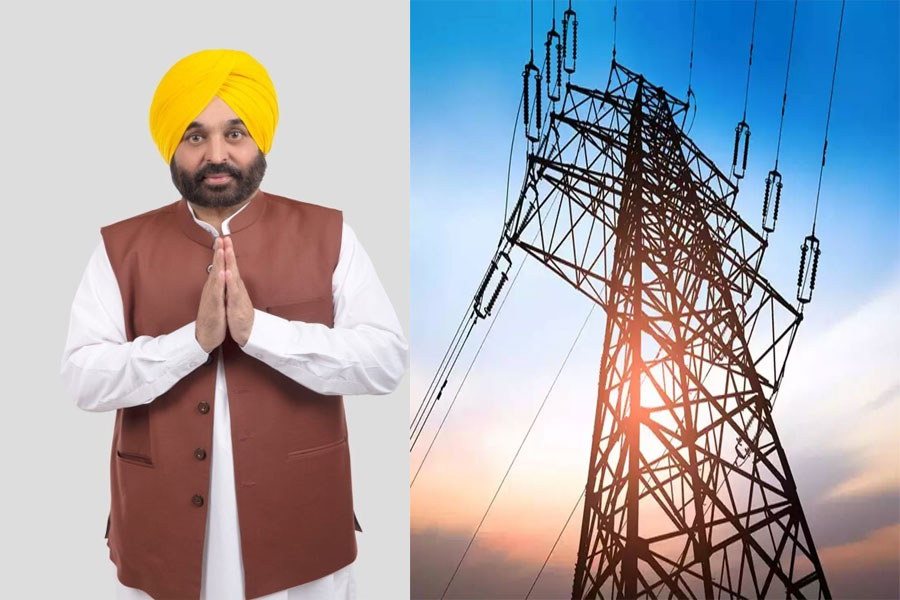
In a major relief to households, the Punjab Cabinet led by Chief Minister Bhagwant Mann on Wednesday gave approval to provide 600 units of free power to every household per billing cycle in the state with effect from July 1.
A spokesman for the Chief Minister’s office said all domestic consumers in the state would be eligible to get zero bills if their consumption is up to 600 units in every billing cycle.
This will give a big reprieve to the domestic consumers who have to hitherto shell out huge money every month in the form of power tariff.
As per the decision, the Scheduled Castes (SC), none SC BPL and backward class domestic consumers, who are currently eligible for free 400 units (per billing cycle), will also get subsidy of 600 units now.
Likewise, freedom fighters of Punjab and their successors, up to grandchildren, and domestic consumers, who are currently eligible for free 400 units, will also get subsidy of 600 units per billing cycle.
In case, the consumption of the SC, non-SC BPL, backward class and freedom fighter categories exceeds units per billing cycle then they will pay only for units consumed in addition to 600 units along with full fixed charges, meter rentals and government levies as applicable.
Similarly, the Cabinet also gave green signal for waiving off pending arrears of all domestic consumers as on December 31, 2021, and unpaid up to June 30, 2022. This move will give relief to around 28.10 lakh domestic consumers with a total benefit of Rs 1,298 crore.
National News
‘Mantriji Haath Jeb Mein Se Bahar’: LS Speaker Om Birla Chides Minister For Putting Hand In Pocket Inside House
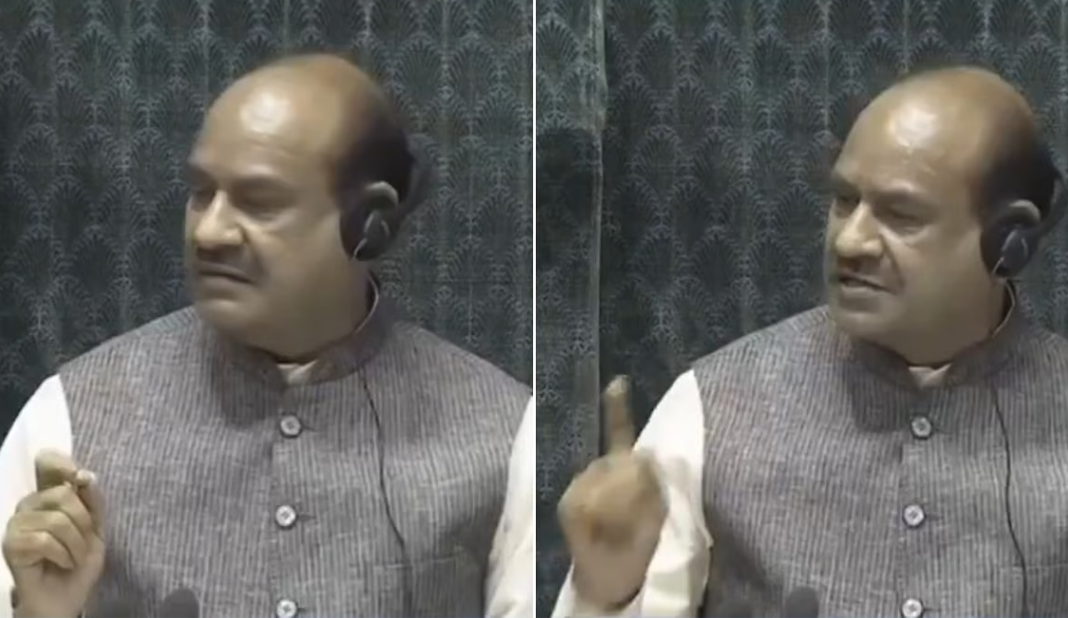
New Delhi, July 26: The Parliament’s Monsoon Session has seen its share of confrontations between the members of the ruling government and the Opposition. Even Lok Sabha speaker Om Birla has not been immune to getting into an argument or chiding a member for inappropriate behaviour. A similar incident was witnessed in the lower house on Thursday when speaker Birla scolded a member of the ruling government in the house and a minister for putting “hands in pocket”.
A video that has now gone viral shows Lok Sabha speaker Om Birla telling the minister, “Mantriji haath jeb se bahar (Minister, hands out of the pocket please)”. After this, Birla requested all the members not to put their hands in pocket while being inside the house.
He also went on to instruct that if a member is speaking, the member sitting in front should not get up and in fact try to sit somewhere back so that the member speaking is not obstructed.
The video also caught the voice of a person trying to clarify after Birla’s remarks. However, the video did not show which minister was scolded by the Lok Sabha Speaker.
This is the second time in two days when the usually unflappable Lok Sabha speaker was seen trying to correct an MP inside the house. On June 24, the exchange between Lok Sabha speaker Om Birla and TMC MP Abhishek Banerjee had gone viral.
The video shows Om Birla asking TMC MP Abhishek Banerjee to not talk about past events while speaking on the budget and focus only on the current budget in his speech. Abhishek Banerjee retorted saying, “Then why do you have no problem when someone speaks on Nehru ji and talks about 60 years old things.” Banerjee then went on to say that if he speaks on demonetisation (which took place in 2016), then the speaker has problem.
The Union Budget and the first one of Modi 3.0 was presented by Finance Minister Nirmala Sitharaman on July 23. The Opposition criticised the budget calling it an exercise by the government to ensure that it keeps its alliance partners happy and alleged that the budget favoured several states and deliberately left out the other regions.
National News
Farah Khan’s Mother Menka Irani Passes Away At 79, Days After Undergoing Multiple Surgeries
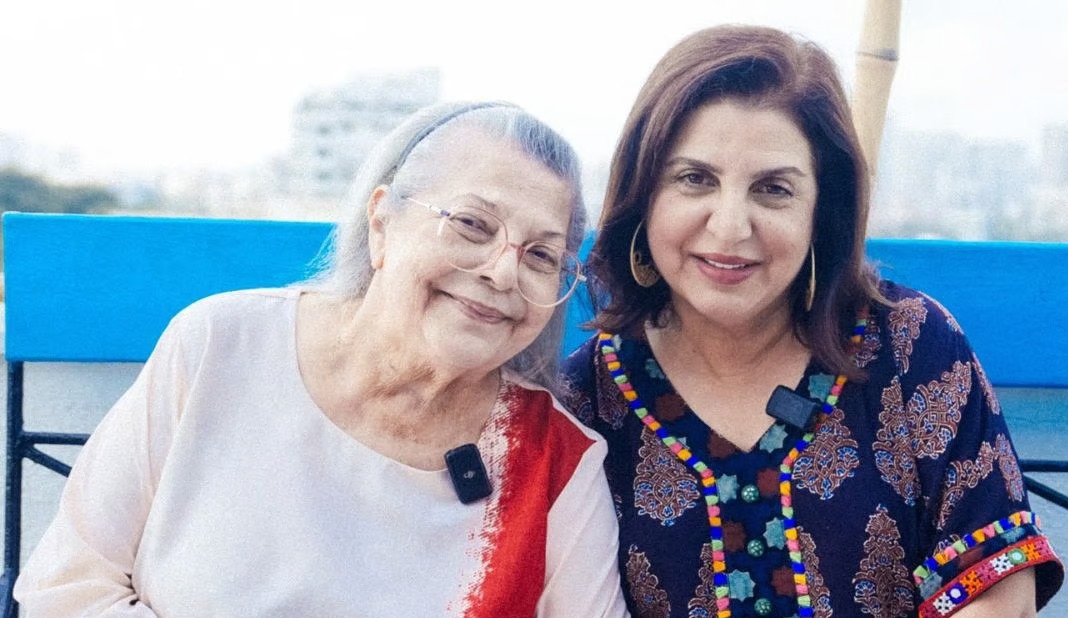
Menka Irani, the mother of filmmakers Farah Khan and Sajid Khan, passed away on July 26, Friday. The news was shared by Kamaal R Khan on his social media handle.
Farah’s mother was 79 when she breathed her last.
The heartbreaking news comes days after Farah had revealed in an Instagram post that her mother had undergone multiple surgeries. On her birthday on July 12, Farah had penned a heartfelt note for her mother and had lauded her strength.
“We all take our mothers for granted. especially me! This last month has been a revelation on how much I love my mom Menka.. she’s been the strongest, bravest person iv ever seen.. sense of humour intact even after multiple surgeries,” she wrote.
“Happy birthday mom! Today’s a good day to come back home. Can’t wait for you to get strong enough to start fighting with me again.. I love you,” she wrote.
Friends of Farah and Sajid were seen reaching their residence to extend their support and condolences.
Menka was the sister of former child actors Honey Irani, who later married Javed Akhtar, and Daisy Irani. She is survived by her two children — Farah and Sajid.
Not many know but Menka also acted in the film Bachpan in 1963, which starred Salman Khan’s father Salim Khan.
In an earlier interview, Farah had revealed how their mother brought Sajid and her up after their father lost all money and died due to alcohol addiction. “We’d lost all our money, dad’s film had flopped. We had a riches to rags story,” she had said.
National News
‘Pakistan Has Not Learned Any Lessons From History’: PM Modi Warns Neighbouring Country On Kargil Vijay Diwas
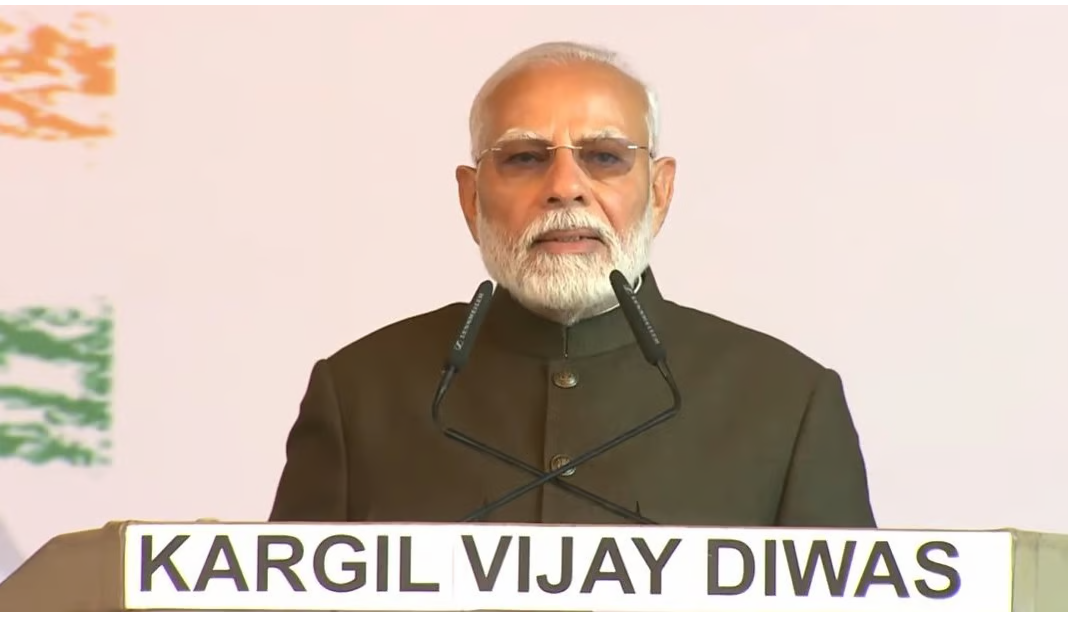
As the country commemorates the 25th anniversary of the victory in the Kargil War, PM Modi on Friday paid tribute to the brave soldiers who lost their lives fighting for the country in the 1999 conflict.
On this occasion, PM Modi also warned the neighboring country, stating that Pakistan has not learned any lessons from history.
Speaking at the Kargil Vijay Diwas Shradhanjali Samaroh in Kargil, PM Modi said, “India was trying to establish peace at that time, in return, Pakistan once again showed its untrustworthy face. However, lies and terror were defeated by the truth. Every time Pakistan attempted something nefarious, it has received a befitting reply in the past. However, Pakistan has not taken any lessons from its own history. It is trying to keep itself relevant taking help of terrorism and proxy war.”
“Today, I am speaking from the very place where the masters of terrorism can hear me clearly! I want to tell these patrons of terrorism that their sinister plans will never succeed,” added PM Modi.
“However, Pakistan has not taken any lessons from its own history. It is trying to keep itself relevant taking help of terrorism and proxy war,”
Paying tribute to the Indian soldiers who died in the war, PM Modi added, “Today, the majestic land of Ladakh marks a significant milestone – 25 years since the triumphant victory of Kargil. Kargil Vijay Diwas reminds us that the sacrifices made for our nation are eternal and forever remembered. As time passes, days turn into months, months into years, and years into centuries – the names of those who laid down their lives for the sake of national security remain etched in our collective memory, forever immortalised!”
Earlier today, PM laid a wreath at the Kargil War Memoria in Drass, Ladakh, on the occasion of the 25th Kargil Vijay Diwas.
Chief of Defence Staff Gen Anil Chauhan and all ranks of the armed forces also joined in remembering the supreme sacrifice made by the soldiers during the Kargil war.
-

 Crime2 years ago
Crime2 years agoClass 10 student jumps to death in Jaipur
-

 Bollywood11 months ago
Bollywood11 months agoJawan Leaked Online! Shah Rukh Khan’s Film Falls Prey To Piracy Within Hours Of Release
-
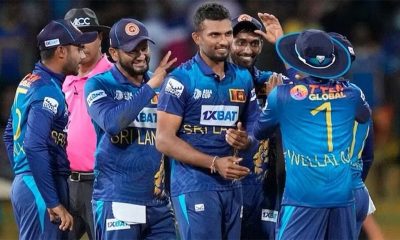
 International10 months ago
International10 months agoAsia Cup 2023: Body Blow For Sri Lanka As Lead Spinner Likely To Miss Final Against India
-
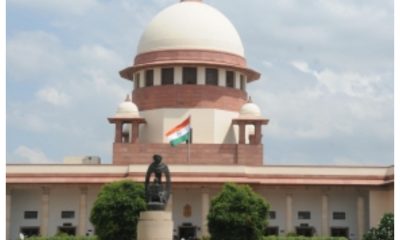
 Crime2 years ago
Crime2 years ago‘You must stop this’, SC expresses concern on hate speeches made at Dharam Sansads
-

 Bollywood11 months ago
Bollywood11 months agoWith Rs.75 Cr, Shah Rukh Khan Breaks His Own Record As Jawan Beats Pathaan On Day 1 At Box Office
-

 Entertainment2 years ago
Entertainment2 years agoRakhi Sawant changes name to Fatima after her wedding with Adil Khan Durrani – Check viral Nikah pics
-

 Bollywood2 years ago
Bollywood2 years agoAnushka Sharma starts shooting for her ‘Chakda Xpress’
-

 Bollywood11 months ago
Bollywood11 months agoJawan On OTT: Shah Rukh Khan’s Film Sold To Netflix For A Whopping Rs.250 Crore







